Publications
Articles, publications, books, tools and multimedia features from the U.S. Institute of Peace provide the latest news, analysis, research findings, practitioner guides and reports, all related to the conflict zones and issues that are at the center of the Institute’s work to prevent and reduce violent conflict.
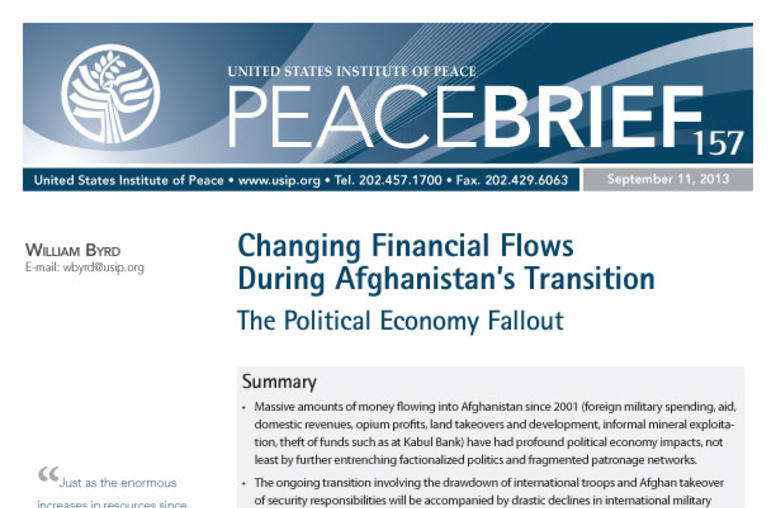
Changing Financial Flows During Afghanistan’s Transition
A sharp decline of financial resources during Afghanistan's transition is expected to have a profound and destabilizing impact. USIP's William Byrd explores the fallout on the country's political economy.
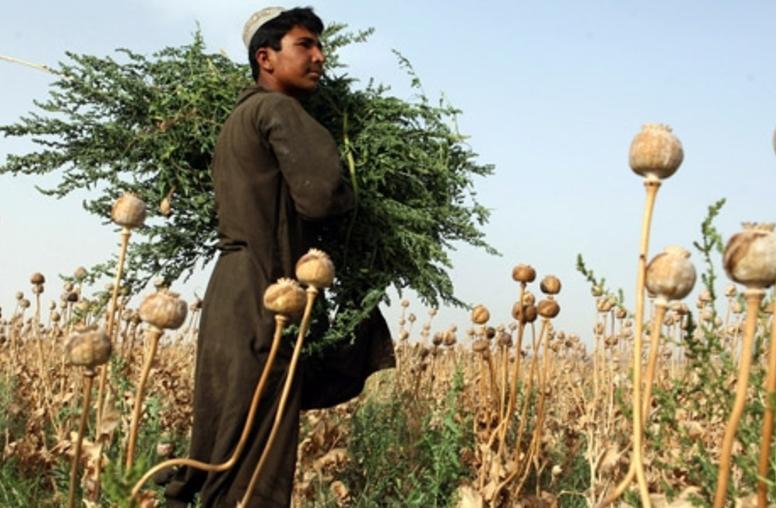
Top Afghan Officials Appeal for Sustained Help Against Opium
Top Afghan ministers and the governors of Kandahar, Helmand and Farah provinces appealed for international support of projects to curb the country’s opium poppy trade over the long haul, amid the risk that cultivation will rise in the short term as most U.S.-led military forces withdraw and foreign aid declines.
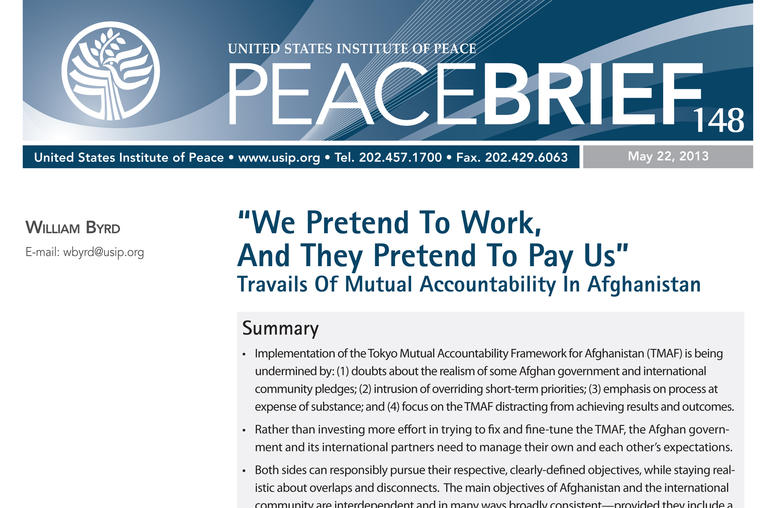
"We Pretend To Work, And They Pretend To Pay Us"
USIP’s Bill Byrd examines the challenges to the Tokyo Mutual Accountability Framework for Afghanistan, and what could be done to make its implementation more effective.
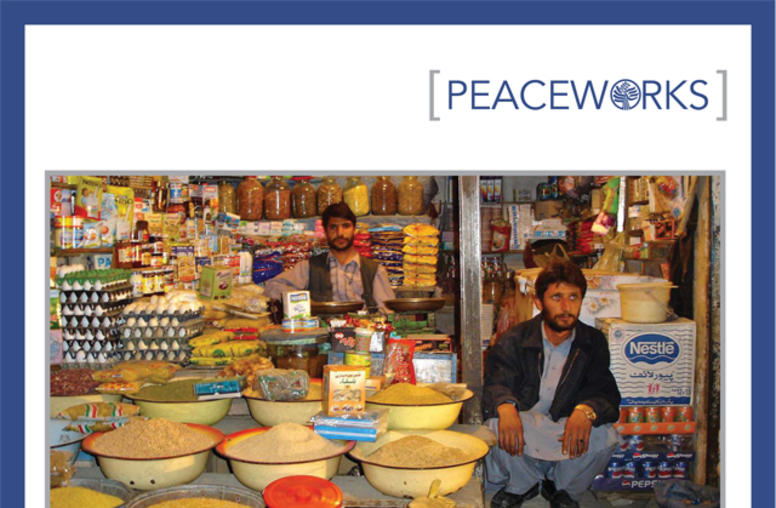
A New Approach to Understanding Afghanistan's Transition
When it is compared with other countries that have undergone transition, Afghanistan is revealed to be stronger than many on economic performance but weaker than the norm for governance and rule of law. If its strengths are supported and weak areas are targeted for improvement, the country will improve its prospects for a successful transition, say the authors of this new report.
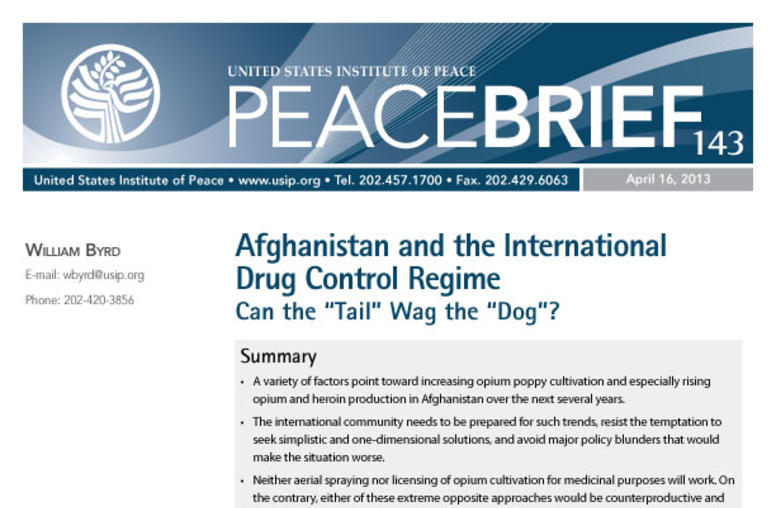
Afghanistan and the International Drug Control Regime
Despite extensive counternarcotics interventions and reductions in poppy cultivation in certain regions, Afghanistan remains the largest supplier of illicit opiates. In this Peace Brief, USIP’s William Byrd examines the current situation and various options to manage the problem.
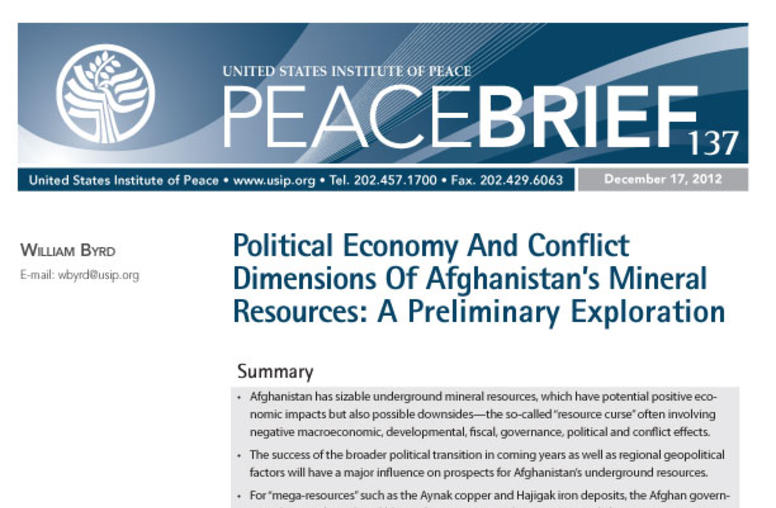
Political Economy and Conflict Dimensions of Afghanistan’s Mineral Resources: A Preliminary Exploration
This paper reflects some initial thinking on the mining sector, in the context of his broader interest in the political economy and conflict implications of sizable financial flows in Afghanistan, also including those generated by illicit narcotics and aid.
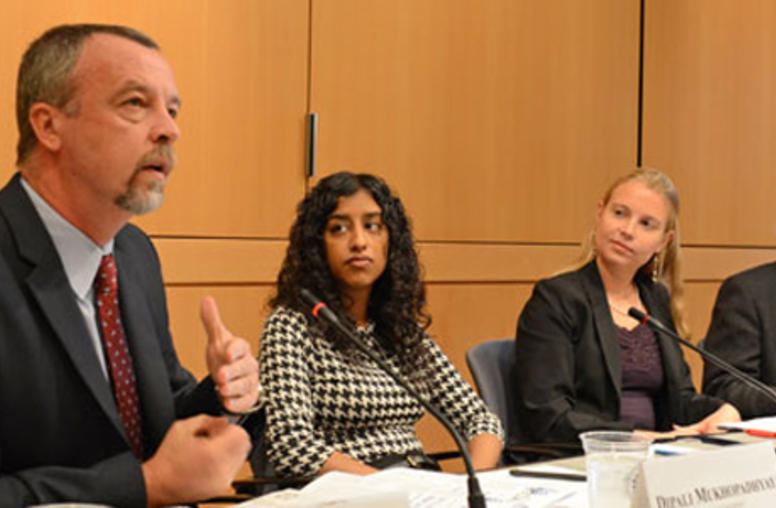
USIP Experts Draw on Afghan History for Transition Lessons
Frances Z. Brown and William Byrd, two of USIP's Afghanistan specialists, discuss the challenges facing Afghanistan in transitioning to full national control over its security and domestic affairs as international military activity and other assistance wind down.
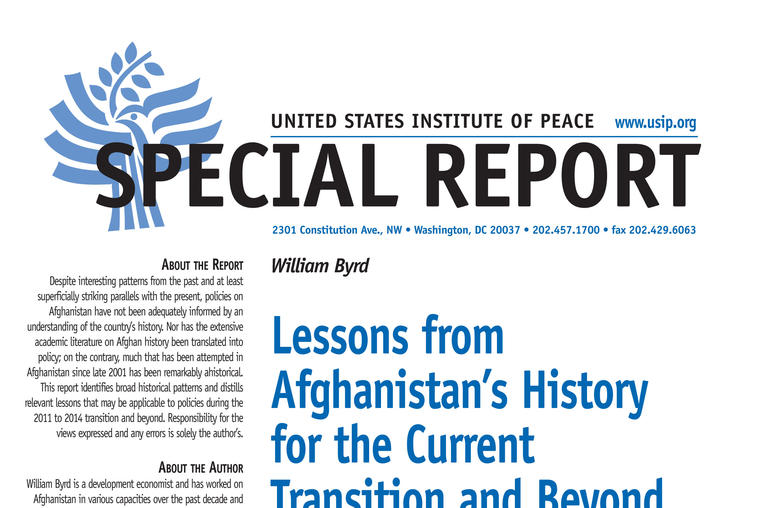
Lessons from Afghanistan’s History for the Current Transition and Beyond
Contrary to some views, Afghanistan has been and can be governed effectively and be politically stable. But history indicates that overly ambitious and rushed modernization efforts are likely to face sharp domestic reactions that can set development back, sometimes for decades.
Afghanistan’s Post-Tokyo Presidential Decree Both More and Less than Meets the Eye?
Afghanistan’s Presidential Decree of July 21 has been billed as an “anti-corruption decree,” setting forth the Afghan government’s concrete plans for fighting corruption. But even a cursory reading reveals the decree is about far more than just anti-corruption. In fact, it appears to be a detailed short-term work program for 32 government ministries and agencies, also including suggestions for actions by the National Assembly and the Supreme Court.
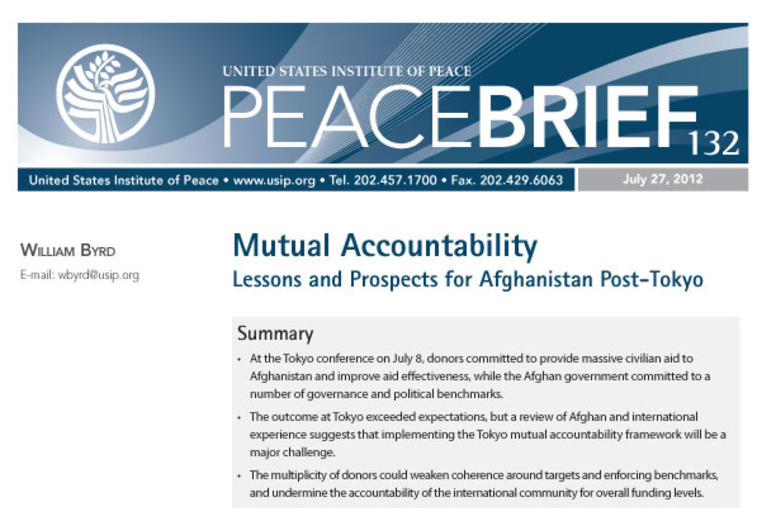
Mutual Accountability
This paper builds on remarks on mutual accountability at the July 18 U.S. Institute of Peace panel discussion “From Transition to the Transformation Decade: Afghanistan’s Economic and Governance Agenda after Tokyo” (second session on “Filling the trust gap—what does ‘mutual accountability’ mean, what are the first steps, what is the role of civil society?”). The views expressed in this brief do not necessarily reflect the views of the U.S. Institute of Peace, which does not take policy positi...